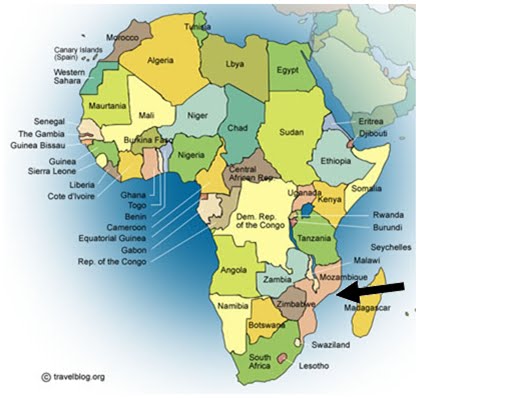Another typical Mozambican conversation:
- Good afternoon!
- Good afternoon!
- All is well?
- All is well, except for this mud!
- Yes, but the rain is good.
- You are right. With rain we will have food.
The rains arrived the morning after I planted the first seeds in my garden and now I’m seeing sprouts. Other people’s gardens are farther along. On the way to school today I saw lots of green: corn, pumpkin, beans, garlic, onions, tomatoes, cacana, cassava…
People here live close to the land. Rains bring life, but too much brings cholera. Northern parts of Mozambique have had outbreaks in the past month. The hospital near my school has its cholera tents and beds prepared just in case. Luckily this area has been spared an outbreak the last few years, mainly thanks to successful water purification efforts (adding bleach) in surrounding rural communities.
Still, I worry about my students, many of whom do not treat their water. Last week they had trimester exams and I wrote the reading comprehension section about the transmission and prevention of cholera. Subliminal messaging? That’s what I’m going for. I try to throw health messages into my lessons wherever possible. Some miscellaneous examples from my 11th grade English classes:
1. I need to buy (buy) a mosquito net.
2. They decided to wait (wait) before having children.
3. They got (get) tested for HIV.
4. We chose (chose) to use a condom.
5. She knows her/hers HIV status.
6. There are two ways to treat your water. What are they?
7. What kind of disease is cholera?
8. What happens when women have children at a very young age?
9. What role do men play in the education of women?
10. What must Nelia and the children eat to stay healthy and strong?
11. How will Claudia and Paulo find out their HIV status?
12. Why must they use a condom even if they are HIV negative?
13. Who can get malaria?
14. How is malaria transmitted?
Sometimes when I talk about condoms in class, the kids will actually pull them out of their backpacks and hold them up. USAID donates them to my school and they are handed out for free in the library. Hurray for prevention! Safe sex is a part of the public school curriculum in Mozambique. Except for the Catholic mission schools, there is little controversy about it. When between 1/4 and 1/3 of your population is thought to be HIV positive, you can’t afford to rely on abstinence-only education.
I’m looking forward to teaching Biology in August. I got a taste of it last week when kids were studying for their finals in the library and asking me questions. I got to explain the lifecycle of the parasite that causes malaria. A student then asked me if you can get HIV from a mosquito bite and I explained why that is not possible. We got to talk about why HIV positive people are more susceptible to diseases like tuberculosis. They were intrigued to learn that it’s possible for an HIV positive women to have an HIV negative baby, and that even though breast milk carries HIV it’s recommended that she breast feed until the baby begins to eat solid foods (since most people can’t afford formula). We even got to have that valuable talk about why you should use a condom even if you trust your partner and have both been tested negative for HIV.
If you had asked me a few months ago if I would be comfortable having these conversations with Mozambican high schoolers I probably would have told you no, but it’s amazing how you learn to fill that teacher role. I care about my students and I want them to have the right information to make healthy decisions. It can be the difference between a great future and a life cut short.




















